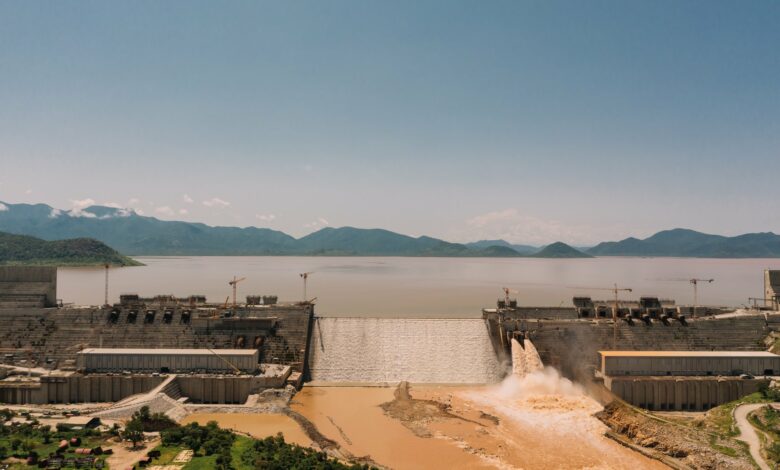
Adel Sadawi, a member of the Egyptian Council for Foreign Affairs and former Dean of the Institute for Research and Strategic Studies on Nile Basin Countries, commented on Ethiopia’s announcement of its readiness to carry out the fifth filling of the Grand Ethiopian Renaissance Dam during the coming months of July and September, considering this as intransigence that poses a great danger to the peoples of Egypt and Sudan.
Sadawi said that Ethiopia has crossed red lines by continuing its intransigence in filling the Renaissance Dam, coinciding with a complete halt to negotiations since last December between the three countries (Egypt-Sudan-Ethiopia), according to the Saudi Okaz newspaper.
This means that Addis Ababa continues to store the amount of water it determines on its own, without any cooperation with the downstream countries, which is a very dangerous matter.
He called on the Egyptian government to work to preserve the water rights of the Egyptian people, as the Nile is the source of life for the Egyptian citizen.
Sadawi highlighted Egypt’s recent efforts to conserve water. Despite high costs, they’ve been repairing canals and drains, desalinating seawater for drinking, and reducing water-intensive crops like rice and sugarcane.
These efforts stem from concerns that Ethiopia’s dam construction and water storage will significantly reduce downstream water flow.
This potential reduction poses an existential threat to Egypt, which relies on the Nile River for 97 percent of its water.
He pointed out that Ethiopia is seeking to fully store water with a total value of between 64-74 billion cubic meters, which is a legal violation and a disregard for the interests and rights of downstream countries and their water security,which is guaranteed by the rules of international law.
Satellite images using satellite technology have revealed Addis Ababa’s intensive preparations for the fifth filling of the Ethiopian Renaissance Dam, which poses a real threat to the water interests of Egypt and Sudan.
Political and partisan forces have called on the Egyptian government to act quickly to preserve the water rights of the Egyptians, warning of the dire consequences of Ethiopia’s continued fifth filling process, after the fourth storage reached 41 billion cubic meters last September.
Alaa El-Zohairy, a member of the Egyptian negotiating committee for the Renaissance Dam, echoed the sentiment, saying that the Ethiopian government’s decision to carry out the fifth filling process came unilaterally, as it sees that coordination with downstream countries or consultation is interference in Ethiopian internal affairs, and this is not true.
He called for the need to intensify international pressure on Addis Ababa in order to reach a preliminary agreement between the three countries before going to the fifth filling, which may affect Egypt’s and Sudan’s shares.
Talks between Egypt and Ethiopia concerning the Renaissance Dam stalled in December 2023. This halt stemmed from several reasons, with the most prominent being Ethiopia’s unwillingness to compromise.
Ethiopia views dam operations as an internal matter, believing no external input should be considered. This stance has led to the ongoing suspension of negotiations.
Despite the stalled talks, Egypt remains vigilant. It is monitoring the situation at the Renaissance Dam through satellite imagery, tracking changes in water flow patterns.



